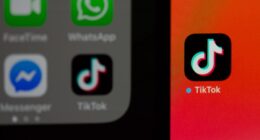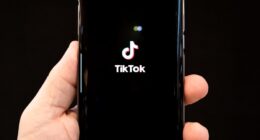Music deals are an essential part of the music industry, as they outline the terms and conditions under which artists, record labels, and other industry professionals work together. These deals are crucial for protecting the rights and interests of all parties involved and ensuring that everyone is compensated fairly for their contributions. Having a solid contract in place is essential to avoid misunderstandings, disputes, and potential legal issues. In this article, we will explore the importance of music deals and the role that contract templates play in streamlining these agreements.
Key Takeaways
- Music deals are crucial for artists to succeed in the music industry.
- Contract templates play a significant role in ensuring fair and beneficial music deals.
- There are various types of music deals, including recording, publishing, and distribution deals.
- Effective music promotion involves utilizing strategies such as social media marketing and collaborations.
- Using contract templates in music promotion can provide numerous benefits, including clarity and protection for all parties involved.
Understanding the Importance of Music Deals
Music deals are important for artists, record labels, and other industry professionals for several reasons. Firstly, these deals outline the financial terms of the agreement, including how much the artist will be paid for their work and how royalties will be distributed. Without a proper contract in place, there is a risk that artists may not receive fair compensation for their contributions.
Secondly, music deals also address important rights and ownership issues. For example, a recording contract will specify who owns the master recordings and how they can be used. Without a clear agreement in place, there is a risk that artists may lose control over their own music or that their work may be used without their permission.
Furthermore, music deals also establish expectations and responsibilities for all parties involved. This includes details about promotional activities, touring schedules, and other obligations. Without a proper contract in place, there is a risk that one party may not fulfill their obligations or that there may be misunderstandings about what is expected.
The Role of Contract Templates in Music Deals
A contract template is a pre-drafted agreement that can be customized to fit the specific needs of a music deal. These templates provide a framework for outlining the terms and conditions of the agreement, making it easier to create a legally binding contract without starting from scratch.
One of the main benefits of using a contract template is that it saves time and money. Instead of hiring a lawyer to draft a contract from scratch, artists and industry professionals can use a template as a starting point and customize it to fit their specific needs. This not only saves money on legal fees but also speeds up the process of creating a contract.
Contract templates also provide a level of consistency and standardization in the music industry. By using templates, artists and industry professionals can ensure that they are using industry-standard terms and clauses, which can help to avoid misunderstandings and disputes.
Types of Music Deals
| Type of Music Deal | Description |
|---|---|
| Record Deal | An agreement between a record label and an artist to produce and distribute music recordings. |
| Publishing Deal | An agreement between a publisher and a songwriter to promote and exploit their compositions. |
| Sync Deal | An agreement between a music supervisor and a rights holder to use a song in a film, TV show, or commercial. |
| Live Performance Deal | An agreement between a promoter and an artist to perform live at a venue or event. |
| Merchandising Deal | An agreement between a merchandiser and an artist to produce and sell merchandise related to the artist’s brand. |
There are several different types of music deals, each with its own unique terms and clauses. Some of the most common types of music deals include recording contracts, publishing deals, and licensing agreements.
Recording contracts outline the terms under which an artist will record and release their music. These contracts typically include details about the number of albums or songs that the artist is required to deliver, the recording budget, and how royalties will be distributed.
Publishing deals, on the other hand, focus on the rights to the songs themselves. These contracts outline how the songs will be published, who will collect royalties on behalf of the songwriter, and how those royalties will be distributed.
Licensing agreements allow artists to grant permission for their music to be used in various ways, such as in films, commercials, or video games. These agreements specify how the music can be used, how much the artist will be paid for each use, and any restrictions or limitations on the use of the music.
Music Promotion: How to Promote Your Music Effectively
Promoting music effectively is essential for artists who want to build a fan base and gain exposure in the industry. There are several strategies that artists can use to promote their music effectively.
One of the most important strategies is to utilize social media platforms. Artists can create profiles on platforms like Instagram, Facebook, Twitter, and TikTok to connect with fans, share updates, and promote their music. By engaging with fans on social media, artists can build a loyal following and generate buzz around their music.
Networking is another important strategy for music promotion. Artists can attend industry events, such as conferences and festivals, to connect with other industry professionals and potential collaborators. By building relationships with other artists, producers, and record labels, artists can increase their chances of getting their music heard by a wider audience.
Collaborating with other artists is also an effective way to promote music. By working with other artists on collaborations or features, artists can tap into each other’s fan bases and gain exposure to new audiences. Collaborations can also help to create buzz and generate excitement around an artist’s music.
Music Marketing Promotion: Strategies to Boost Your Music Sales

In addition to promoting music, marketing is also crucial for boosting music sales. Marketing involves creating a strong brand image and utilizing targeted advertising to reach potential fans.
Creating a strong brand image involves developing a unique identity that sets an artist apart from others in the industry. This includes creating a visually appealing logo, designing eye-catching album artwork, and developing a consistent aesthetic across all promotional materials. By creating a strong brand image, artists can attract fans who resonate with their style and message.
Targeted advertising is another important marketing strategy for boosting music sales. Artists can use platforms like Facebook Ads or Google Ads to target specific demographics or interests. By reaching the right audience with their advertising, artists can increase the chances of converting potential fans into paying customers.
The Benefits of Using Contract Templates in Music Promotion
Contract templates can also be used in music promotion deals, such as sponsorships and endorsements. These templates provide a framework for outlining the terms of the agreement between the artist and the sponsor or brand.
Using a contract template in music promotion deals offers several benefits for both the artist and the sponsor. For the artist, using a template ensures that all the necessary terms and conditions are included in the agreement, protecting their rights and interests. It also saves time and money by providing a starting point for the contract.
For the sponsor or brand, using a contract template provides a level of consistency and standardization. This ensures that all sponsorship deals are structured in a similar way, making it easier to manage multiple agreements and ensure that all parties are treated fairly.
Tips for Creating Effective Music Promotion Contracts
When creating music promotion contracts, there are several tips and best practices to keep in mind. Firstly, it is important to be clear and concise with the terms of the agreement. This includes clearly outlining the scope of the promotion, the duration of the agreement, and any performance expectations.
It is also important to include specific performance expectations in the contract. This includes details about how often the artist will promote the sponsor or brand, what platforms or channels will be used for promotion, and any specific messaging or branding requirements.
Additionally, it is important to include provisions for termination or cancellation of the agreement. This ensures that both parties have an exit strategy if the partnership is not working out as expected.
How to Negotiate Music Deals Using Contract Templates
Negotiating music deals using contract templates requires a thorough understanding of the key terms and clauses that are typically included in these agreements. It is important to review the template carefully and make any necessary modifications to fit the specific needs of the deal.
When negotiating a music deal, it is important to be prepared to compromise. Both parties should come to the table with their priorities and be willing to find common ground. It may be necessary to make concessions on certain terms in order to reach an agreement that is mutually beneficial.
It is also important to seek legal advice when negotiating music deals, especially if there are complex or high-value agreements involved. A lawyer can review the contract template and provide guidance on any modifications or additions that may be necessary to protect the interests of the artist or other industry professional.
Streamlining Your Music Deals with Contract Templates
In conclusion, music deals are an essential part of the music industry, as they outline the terms and conditions under which artists, record labels, and other industry professionals work together. Having a solid contract in place is crucial for protecting the rights and interests of all parties involved and ensuring fair compensation.
Contract templates play a valuable role in streamlining music deals by providing a framework for creating legally binding agreements. These templates save time and money, provide consistency and standardization, and help to protect the interests of all parties involved.
By using contract templates, artists and industry professionals can streamline their music deals and focus on what they do best – creating and promoting music. It is important for all parties to take advantage of contract templates to protect their interests and ensure that their music careers are built on a solid foundation.
If you’re looking for a comprehensive guide on music industry contract templates, you won’t want to miss this informative article from Music Marketing Digital. This article dives deep into the importance of having well-drafted contracts in the music industry and provides valuable insights on how to create effective templates. Whether you’re an artist, manager, or label executive, understanding the intricacies of music contracts is crucial for protecting your rights and ensuring fair business practices. Check out the article here to gain a better understanding of this essential aspect of the music business.
FAQs
What are music industry contract templates?
Music industry contract templates are pre-written legal documents that outline the terms and conditions of a business agreement between two or more parties in the music industry. These templates can be customized to fit the specific needs of the parties involved.
Who uses music industry contract templates?
Music industry contract templates are used by a variety of professionals in the music industry, including artists, managers, record labels, publishers, and producers. These templates can be used for a variety of agreements, such as recording contracts, publishing agreements, and licensing agreements.
What are the benefits of using music industry contract templates?
Using music industry contract templates can save time and money by providing a pre-written document that can be customized to fit the specific needs of the parties involved. These templates also ensure that all parties are on the same page and understand the terms and conditions of the agreement.
Where can I find music industry contract templates?
Music industry contract templates can be found online through various legal websites and services. It is important to ensure that the template is up-to-date and legally valid in the relevant jurisdiction.
Do I need a lawyer to use a music industry contract template?
While it is not necessary to have a lawyer to use a music industry contract template, it is recommended to have a lawyer review the document before signing to ensure that it is legally valid and protects your interests.
Can music industry contract templates be modified?
Yes, music industry contract templates can be modified to fit the specific needs of the parties involved. It is important to ensure that any modifications are legally valid and do not conflict with the original terms and conditions of the template.









